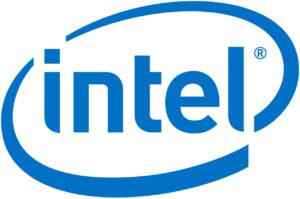 In this video from SC18 in Dallas, Osama Sarfaraz from HPE describes how the company is using Intel FPGA’s to deliver Programmability, Flexibility, and Upgradability for HPC users.
In this video from SC18 in Dallas, Osama Sarfaraz from HPE describes how the company is using Intel FPGA’s to deliver Programmability, Flexibility, and Upgradability for HPC users.
While GPUs are good at what they do, their strengths are biased towards very particular types of processes. Another more versatile type of accelerator, Field Programmable Gate Arrays (FPGAs), has seen further development by Intel and offers customizable, gate-array based multi-functional acceleration. In fact, the FPGA is designed to actually be configured by a customer or designer after manufacturing; hence it is “field-programmable.” An FPGA offers high I/O bandwidth plus a fine-grained, flexible and custom parallelism, allowing it to be programmed for many different types of workloads, including Big Data analytics, financial services and deep learning.
 HPE has teamed up with Intel to offer FPGA solutions based on HPE ProLiant DL Gen10 servers, including the HPE ProLiant DL360 and DL380 server platforms with Intel Arria 10 GX FPGAs. The HPE ProLiant DL360 offers a 1U dual processor dense compute server with exceptional flexibility and expandability, while the HPE ProLiant DL380 provides a 2U dual processor server with world-class performance and versatility for multiple workloads. HPE servers also offer a unique Silicon Root of Trust to protect against firmware-based cybersecurity threats. The combination of HPE servers with Intel FPGAs provides flexible, industrial-strength compute solutions that can be tuned for specific workloads.
HPE has teamed up with Intel to offer FPGA solutions based on HPE ProLiant DL Gen10 servers, including the HPE ProLiant DL360 and DL380 server platforms with Intel Arria 10 GX FPGAs. The HPE ProLiant DL360 offers a 1U dual processor dense compute server with exceptional flexibility and expandability, while the HPE ProLiant DL380 provides a 2U dual processor server with world-class performance and versatility for multiple workloads. HPE servers also offer a unique Silicon Root of Trust to protect against firmware-based cybersecurity threats. The combination of HPE servers with Intel FPGAs provides flexible, industrial-strength compute solutions that can be tuned for specific workloads.
One of the traditional difficulties with FPGAs has been the specialized nature of programming required. In many cases, this has rendered FPGA technology inaccessible to data scientists and application developers. Intel has developed the Acceleration Stack for Intel Xeon CPU with FPGAs to provide a common developer interface for both application and accelerator function developers, and includes drivers, Application Programming Interfaces (APIs) and an FPGA Interface Manager. Together with acceleration libraries and development tools, Intel’s Acceleration Stack enables developers to focus on the unique value-add of their solutions.
 Intel has also open-sourced the Open Programmable Acceleration Engine (OPAE) technology, a software programming layer that provides a consistent API across Intel FPGA platforms. It is designed for minimal software overhead and latency, while providing an abstraction for hardware-specific FPGA resource details. OPAE is the default software stack for the Intel Xeon processor with both integrated and discrete FPGA devices.
Intel has also open-sourced the Open Programmable Acceleration Engine (OPAE) technology, a software programming layer that provides a consistent API across Intel FPGA platforms. It is designed for minimal software overhead and latency, while providing an abstraction for hardware-specific FPGA resource details. OPAE is the default software stack for the Intel Xeon processor with both integrated and discrete FPGA devices.




